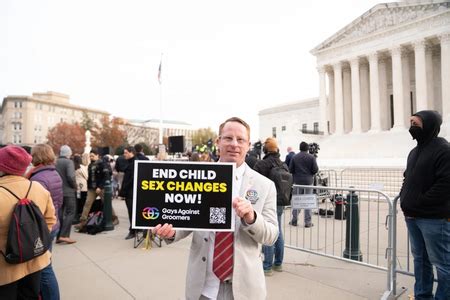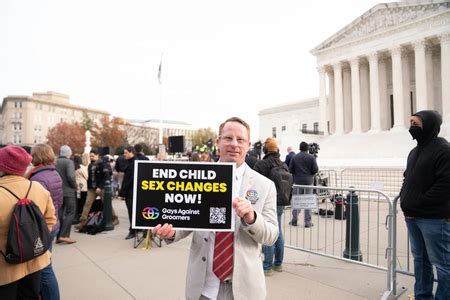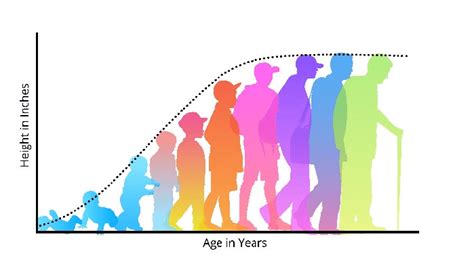
A young woman who detransitioned is applauding the Supreme Court’s decision to allow states to ban gender-affirming care for minors, arguing that such interventions can have irreversible and detrimental consequences. Chloe Cole, who began transitioning at age 13 and later detransitioned, believes the ruling protects vulnerable youth from making life-altering decisions they may later regret.
Chloe Cole, now 19, has become a prominent voice in the debate surrounding gender-affirming care for minors, sharing her personal experiences and advocating for caution. Cole initiated her gender transition at 13, undergoing hormone therapy and a double mastectomy at 15, before ultimately deciding to detransition at 16. She now asserts that she was too young to make such significant medical decisions and that the long-term effects have been devastating. Her case has garnered national attention, contributing to the growing discussion about the appropriateness of gender-affirming care for adolescents.
The Supreme Court’s recent decision to allow state bans on gender-affirming care for minors has been met with mixed reactions. Supporters of the bans argue that they protect children from potentially harmful medical interventions, while opponents contend that they deny transgender youth access to necessary and life-saving care. The ruling specifically addressed laws in states like Tennessee and Kentucky, which prohibit hormone therapy, puberty blockers, and gender-affirming surgeries for individuals under 18.
Cole’s perspective adds a layer of complexity to the debate. She claims that she was not adequately informed about the potential risks and long-term consequences of gender-affirming care before beginning her transition. “I was failed by the system,” Cole stated in an interview. “I was not given the information I needed to make an informed decision.” She now fears the irreversible physical changes she underwent during her transition, including the loss of her breasts and potential fertility issues.
Cole’s story is not unique, as an increasing number of young people who have undergone gender transition are now choosing to detransition. The reasons for detransitioning are varied, ranging from realizing that they are not transgender to experiencing social stigma or dissatisfaction with the results of their transition. However, the experiences of detransitioners like Cole highlight the need for careful evaluation and informed consent before initiating gender-affirming care, especially for minors.
The debate over gender-affirming care for minors has become increasingly politicized, with strong opinions on both sides. Advocates for transgender rights argue that gender-affirming care is medically necessary and can significantly improve the mental health and well-being of transgender youth. They point to studies that show that transgender youth who receive gender-affirming care have lower rates of depression, anxiety, and suicide. Conversely, opponents of gender-affirming care argue that it is experimental and potentially harmful, with irreversible consequences. They also raise concerns about the potential for social contagion, suggesting that some young people may be influenced by their peers or online communities to identify as transgender.
The Supreme Court’s decision has significant implications for transgender youth and their families. In states with bans on gender-affirming care, transgender youth will be unable to access hormone therapy, puberty blockers, and gender-affirming surgeries, even with the consent of their parents and medical professionals. This could lead to increased rates of depression, anxiety, and suicide among transgender youth, as well as forcing families to relocate to states where gender-affirming care is available.
The legal landscape surrounding gender-affirming care is constantly evolving, with ongoing lawsuits challenging state bans and regulations. The Supreme Court’s decision has emboldened opponents of gender-affirming care, who are likely to push for similar bans in other states. Conversely, advocates for transgender rights are vowing to continue fighting for access to gender-affirming care for all transgender youth.
Cole’s advocacy has included testifying before state legislatures, sharing her story in media interviews, and working with organizations that support detransitioners. She hopes that her experiences will help other young people make informed decisions about their gender identity and avoid the potential pitfalls of transitioning. She emphasizes the importance of mental health support, comprehensive evaluation, and parental involvement in the decision-making process.
The debate over gender-affirming care raises fundamental questions about the rights of transgender youth, the role of parents in medical decision-making, and the appropriate standards for medical care. It is a complex and multifaceted issue with no easy answers. As the legal and political battles continue, it is essential to listen to the voices of all stakeholders, including transgender youth, their families, medical professionals, and detransitioners like Chloe Cole.
The long-term effects of gender-affirming care are still being studied, and there is a lack of comprehensive data on the outcomes of transgender youth who undergo hormone therapy, puberty blockers, and gender-affirming surgeries. This uncertainty adds to the complexity of the debate and underscores the need for caution and careful monitoring. Further research is needed to better understand the risks and benefits of gender-affirming care, as well as the long-term outcomes for transgender youth who receive such care.
The increasing visibility of detransitioners like Chloe Cole has challenged the narrative that gender transition is always a positive and beneficial experience. Their stories highlight the potential for regret and the importance of considering the long-term consequences of medical interventions. While detransitioners represent a small percentage of the overall transgender population, their experiences deserve attention and consideration in the ongoing debate about gender-affirming care.
The discussion surrounding gender-affirming care often overlooks the underlying mental health issues that may contribute to gender dysphoria. Many transgender youth experience depression, anxiety, and other mental health challenges, which can be exacerbated by the social stigma and discrimination they face. It is essential to address these underlying mental health issues in conjunction with any medical interventions, to ensure that transgender youth receive comprehensive and holistic care.
The role of social media in influencing young people’s understanding of gender identity is another area of concern. Social media platforms can expose young people to a wide range of perspectives on gender identity, some of which may be misleading or inaccurate. It is important for parents and educators to help young people navigate social media responsibly and critically evaluate the information they encounter.
The debate over gender-affirming care is not limited to the United States. Similar discussions are taking place in other countries around the world, with varying approaches to regulating and providing gender-affirming care. Some countries have adopted more restrictive policies, while others have embraced a more affirmative approach. The international experience can provide valuable insights and lessons for policymakers in the United States.
Ultimately, the goal should be to create a supportive and inclusive environment for all young people, regardless of their gender identity. This includes providing access to mental health care, education, and social support, as well as ensuring that medical decisions are made in a thoughtful and informed manner. The well-being of transgender youth should be the guiding principle in all discussions and decisions related to gender-affirming care.
Chloe Cole’s journey underscores the profound impact that decisions about gender identity and medical interventions can have on young lives. Her story serves as a reminder of the importance of careful consideration, informed consent, and comprehensive support for all individuals navigating questions of gender. As the debate over gender-affirming care continues, her voice, and those of others who have detransitioned, offer valuable perspectives that can inform policy and practice.
The politicization of healthcare decisions for transgender youth is creating a challenging landscape for families and medical professionals. The intrusion of political ideologies into medical practice can undermine the trust between patients and doctors and lead to suboptimal outcomes. Medical decisions should be based on scientific evidence, clinical expertise, and the individual needs of the patient, rather than political considerations.
The legal challenges to state bans on gender-affirming care are based on constitutional arguments, including the right to equal protection under the law and the right to privacy. Advocates for transgender rights argue that these bans discriminate against transgender youth and deny them access to necessary medical care. The courts will ultimately decide whether these bans are constitutional.
The experiences of detransitioners highlight the need for more research on the long-term outcomes of gender-affirming care. There is a lack of comprehensive data on the psychological, social, and physical well-being of individuals who undergo gender transition, as well as those who detransition. Further research is needed to better understand the complexities of gender identity and the long-term effects of medical interventions.
The discussion surrounding gender-affirming care often focuses on the medical aspects, but it is also important to consider the social and cultural factors that influence gender identity. Gender is a complex and multifaceted construct, shaped by individual experiences, social norms, and cultural expectations. A holistic approach to gender identity should take into account these social and cultural factors, as well as the medical aspects.
The role of parents in supporting their transgender children is crucial. Parents can provide emotional support, advocate for their children’s rights, and help them navigate the challenges of living as a transgender person. However, parents may also struggle to understand and accept their children’s gender identity, which can create conflict and tension. It is important for parents to seek support and education to better understand their children’s experiences.
The debate over gender-affirming care is likely to continue for the foreseeable future. As the legal and political landscape evolves, it is essential to maintain a respectful and informed dialogue about this complex and sensitive issue. The well-being of transgender youth should be the paramount concern in all discussions and decisions.
The increasing number of young people identifying as transgender has raised questions about the role of social contagion and peer influence. Some researchers have suggested that social contagion may contribute to the rising rates of transgender identification, particularly among adolescent girls. However, other researchers argue that there is no evidence to support the theory of social contagion and that the increasing rates of transgender identification are simply a result of greater awareness and acceptance.
The mental health needs of transgender youth are often overlooked. Transgender youth are at higher risk for depression, anxiety, and suicide than their cisgender peers. It is essential to provide transgender youth with access to mental health care that is affirming and supportive. Mental health professionals should be trained to work with transgender youth and to understand the unique challenges they face.
The availability of gender-affirming care varies widely across the United States. In some states, gender-affirming care is readily available and accessible, while in other states, it is difficult or impossible to obtain. This geographic disparity can create significant challenges for transgender youth and their families, particularly those who live in states with restrictive laws or policies.
The long-term effects of puberty blockers are not fully understood. Puberty blockers are medications that suppress the production of sex hormones, delaying the onset of puberty. They are often used to treat transgender youth who are not yet ready to begin hormone therapy. However, there are concerns about the potential long-term effects of puberty blockers on bone density, brain development, and fertility.
The debate over gender-affirming care is a complex and multifaceted issue with no easy answers. It is important to approach this issue with empathy, respect, and a willingness to listen to all perspectives. The well-being of transgender youth should be the guiding principle in all discussions and decisions.
The language used to describe gender identity and gender-affirming care can be confusing and controversial. It is important to use accurate and respectful language when discussing these topics. For example, the term “gender reassignment surgery” is often considered offensive by transgender people, as it implies that their gender is being reassigned. The preferred term is “gender-affirming surgery.”
The role of the media in shaping public opinion about gender identity and gender-affirming care is significant. The media has the power to influence public attitudes and beliefs about transgender people and the medical care they receive. It is important for the media to report on these issues accurately and fairly, and to avoid perpetuating harmful stereotypes or misinformation.
The experiences of intersex individuals are often overlooked in the debate over gender identity and gender-affirming care. Intersex individuals are born with sex characteristics that do not fit typical definitions of male or female. They may undergo medical interventions in infancy or childhood to “normalize” their sex characteristics. However, many intersex individuals now advocate for the right to choose whether or not to undergo these interventions.
The ethical considerations surrounding gender-affirming care for minors are complex and challenging. There are concerns about the ability of minors to provide informed consent, the potential for regret, and the long-term effects of medical interventions. It is important to weigh the potential benefits and risks of gender-affirming care on a case-by-case basis, and to involve parents, medical professionals, and the transgender youth in the decision-making process.
The debate over gender-affirming care is a reflection of broader societal attitudes about gender and sexuality. As society becomes more accepting of diverse gender identities and sexual orientations, the debate over gender-affirming care is likely to evolve. It is important to continue to educate ourselves about these issues and to challenge harmful stereotypes and misinformation.
Frequently Asked Questions (FAQ)
1. What is gender-affirming care?
Gender-affirming care refers to a range of medical, psychological, and social interventions designed to support transgender and gender diverse individuals in aligning their bodies and lives with their gender identity. These interventions may include puberty blockers, hormone therapy, surgery, mental health counseling, and social support.
2. What are puberty blockers and hormone therapy?
Puberty blockers are medications that temporarily suppress the production of sex hormones, delaying the onset of puberty. They are sometimes used in transgender youth to give them more time to explore their gender identity before making irreversible decisions about hormone therapy or surgery. Hormone therapy involves taking medications to induce physical changes that align with a person’s gender identity, such as testosterone for transgender men or estrogen for transgender women.
3. What is detransitioning, and why do people detransition?
Detransitioning is the process of discontinuing or reversing a gender transition. People may detransition for a variety of reasons, including realizing that they are not transgender, experiencing social stigma or discrimination, dissatisfaction with the results of their transition, or concerns about the long-term health effects of gender-affirming care.
4. What does the Supreme Court ruling mean for transgender youth?
The Supreme Court ruling allows states to ban gender-affirming care for minors, meaning that transgender youth in those states may be unable to access puberty blockers, hormone therapy, and gender-affirming surgeries, even with the consent of their parents and medical professionals. This ruling has significant implications for the health and well-being of transgender youth and their families.
5. Where can I find more information and support related to transgender issues?
There are many organizations that provide information and support related to transgender issues, including the Human Rights Campaign (HRC), the National Center for Transgender Equality (NCTE), GLAAD, and PFLAG. These organizations offer resources for transgender individuals, their families, and allies. Medical information can be found through professional organizations like the American Academy of Pediatrics (AAP) and the World Professional Association for Transgender Health (WPATH).









